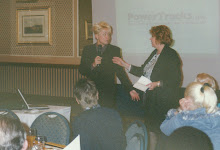Nowadays, it seems a lot of companies are incorporating pre-hiring assessments into their hiring strategy. Personally, I like assessments even though no one assessment or program can really get inside a candidate’s brain matter to see what makes them tick, motivates them to do a great job, or predict how long they will stay around. I think they like to think they can but formal assessments leave out one critical component in determining a successful match – how well a company measures up in meeting candidates’ goals and expectations.
Hiring companies can rely upon validity measurements and test scores to determine if the candidate can perform the job and, hopefully, predict how well they will succeed in that job. And that is great but, like any other relationship, things can become stale when one party wants the other to rev things up a bit. While a good pre-hire assessment will be able to predict if the candidate will be adequately challenged at the time of hire, how does a job candidate measure how well a company evolves to continually challenge employees 5, 10, or 15 years down the road? Without this, it is a bit of a lopsided process.
In the beginning of any relationship, tension exists as to acceptance. Will the company offer the job and/or will the job candidate accept the job? This uncertainty and wanting can cloud the issue of whether or not the company and the employee are the best fit for each other for the long haul. Like personal relationships, there is a honeymoon period but this doesn’t occur until after the deal has been sealed. While everyone hopes the big questions are answered during the courting phase, unlike personal relationships, the courting phase for job hunters and hiring companies is short, by comparison. It is also highly subjective, depending upon the individual representing the company. A hiring manager to whom the employee will report is markedly different than a human resources professional who has likely not performed the work the employee is about to do and may not be aware of what it takes for the employee to get ahead in the job for which they are hiring. I know, long sentence, but I need to make a point.
So, how do you go about measuring how well a company will match your expectations for a long and successful relationship? The tried-and-true method of asking questions about what the company foresees for you in 5, 10, 15 years or more down the road and their plans and ability to get you there.
Executive Onboarding Note: The Importance Of The Confidence To Be Open To
Help
-
While executive onboarding, get help. If it’s offered, take it. If it’s not
offered, find it.
The post Executive Onboarding Note: The Importance Of The C...
7 years ago




No comments:
Post a Comment